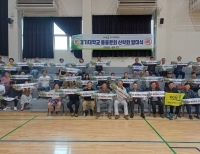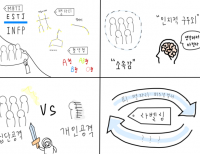Recently, the number of young people who are living at home without looking for a job has reached its highest level. Young adults make up the largest proportion of those who are not in employment, education, or training (NEET) and who do not have any serious illness or disability. Many of them are in their 20s and 30s, and people question the cause of this inactive youth phenomenon. Pharos will look into the causes of these social problems and find out how to solve them.
Experts explain that the so-called job mismatch phenomenon is worsening, which is why the number of inactive youth has increased rapidly. A job mismatch refers to a phenomenon in which the supply and demand of job openings and job searchers are not compatible. As for the cause of this phenomenon, young people who are inactive answered that the desired wage level and working conditions were not suitable for them. In addition, they answered that they could not find a job due to a lack of education, skills, and experience. Through this, it was found that young people not only felt the burden of finding a job but also that of social pressure and psychological anxiety. Young people lose their willpower and confidence because they can’t get a good job, so they just choose to stay at home without looking for a job. In addition, more and more people quit because they are afraid of the social life they have already experienced and do not look for jobs anymore. Those who have experienced work life but have not adapted or are less motivated to participate in society said they do not want to experience any more social life after leaving the company.
Then, how can we solve the problem of these young NEETs? Currently, the MOEL (Ministry of Employment and Labor) is implementing a policy to promote the easy participation of young people in the labor market, focusing on vocational education and training rather than increasing quantitative jobs. The government is also giving support to young people who have dropped out of the labor market through service-oriented education so that they can actively seek jobs again. In addition, the government and companies should cooperate to create jobs that young people want. Through this, employment policies for young people should be prepared so that even young people without experience can get the jobs they want. In addition, it is necessary to increase education in future-oriented fields such as digital technology and spare no budget on career development support programs so that they can have the jobs they want. People who have given up looking for a job or fled out of fear should be given an opportunity to participate in economic activities again. However, in a situation where the dual structure of the labor market is deepening and the number of quality jobs that young people want is not sufficiently increased, policies that focus only on employment support have limitations. As such, the rapid increase in the number of young people who are economically inactive clearly shows why labor reform and education reform are urgent.
Young NEETs are not only a Korean issue but also an issue worldwide. Recently, China has had the same tendency as Korea’s inactive young adults. They call it ‘tang ping.’ Tang ping (身+尙平) means the people who are doing nothing while lying down. There are structural problems because the number of NEETs is increasing. In other words, there is a social structure problem that differentiates wages in permanent positions and temporary positions and between major companies and small businesses. Young people tend to avoid dangerous jobs because the economy and wages are increasing. Many young people prefer to work in Hyundai Motors production. However, they avoid working for Hyundai Motors subcontractors, so Hyundai Motors subcontractors experience a labor shortage. Many people have applied to major companies, but the number of open positions is limited. Although many young people want to work for major companies, many major companies have changed the recruiting method to prefer experienced staff instead of using open recruitment. It means the chances for those in their 20s to 30s to get a job is decreasing. Therefore, young people who lack work experience feel despair and give up on getting a job. Besides, experts analyzed that the large number of impractical university majors and lack of social demand for these degrees have worsened this problem. The imbalance between university major and job market demand is called social resource waste. The OECD said if Korea wants to increase its productivity, it must solve the problem of impractical university majors.
The future of the economy relies on today’s young people. However, even if the young generation has the ability to work but they don’t try to look for jobs, it is a very serious problem. This is connected to low marriage and birth rates. Korea’s society may get even worse. It is not only young adults’ fault. Many firms avoid hiring new recruits, so young people can’t get a desirable job. In addition, the difference between the job hunter’s eye level and the company’s eye level is a problem too. For these reasons, semiconductor companies need thirty thousand workers over the next ten years and they have difficulty with labor shortages. To resolve the NEET problem, it is important to enforce university education necessary in industrial sites and manpower reeducation suited to market changes.
80th Reporter • KIM YU JIN • yujinkim627@gmail.com
80th Reporter • CHOI JUN HONG • chloi0058@naver.com
- TAG
-
 Freedom Given to Youth: An Opportunity for Choice or a Burden of Constraint?
“Are we truly free today?” Classical literature is far more than time-honored stories. It offers profound insights into human nature and society that transcend time, remaining a valuable resource for examining the challenges our world faces today. This article will draw on George Orwell’s 1984 and Charles Dickens’ Oliver Twist to explore the contemporary issues of youth housing and the emergence of a surveillance society ...
Freedom Given to Youth: An Opportunity for Choice or a Burden of Constraint?
“Are we truly free today?” Classical literature is far more than time-honored stories. It offers profound insights into human nature and society that transcend time, remaining a valuable resource for examining the challenges our world faces today. This article will draw on George Orwell’s 1984 and Charles Dickens’ Oliver Twist to explore the contemporary issues of youth housing and the emergence of a surveillance society ...

 [단신] 산악회, 본교 동문의 버팀목이 될 수 있도록
[단신] 산악회, 본교 동문의 버팀목이 될 수 있도록
 [사회메인] 노인 인구 1,000만 시대, 준비 없는 사회가 불안해
[사회메인] 노인 인구 1,000만 시대, 준비 없는 사회가 불안해
 [네컷만화] 라벨링 문화
[네컷만화] 라벨링 문화
 [진리터] 결국 우리 모두 돌아볼 것이니
[진리터] 결국 우리 모두 돌아볼 것이니

 목록
목록










